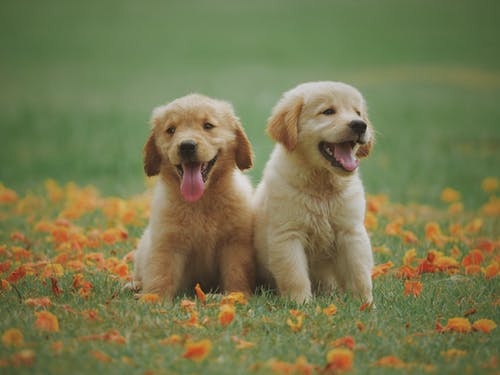Community
CDC issues social distancing guidelines for pets after animals test positive for COVID-19

The CDC has issued social distancing guidelines to include pets after some animals have tested positive in the United States for COVID-19.
According to the CDC, the virus that causes COVID-19 spreads mainly from person to person through respiratory droplets from coughing, sneezing, and talking. Recent studies show that people who are infected but do not have symptoms likely also play a role in the spread of COVID-19. At this time, there is no evidence that animals play a significant role in spreading the virus that causes COVID-19. Based on the limited information available to date, the risk of animals spreading COVID-19 to people is considered to be low.
CDC is aware of a small number of pets, including dogs and cats, to be infected with the virus that causes COVID-19, mostly after close contact with people with COVID-19. Only a few of the animals reported to be positive showed signs of illness.
The first in the United States of an animal testing positive for the virus that causes COVID-19 was a tiger with a respiratory illness at a zoo in New York City. Samples from this tiger were collected and tested after several lions and tigers at the zoo showed signs of respiratory illness. Public health officials believe these large cats became sick after being exposed to a zoo employee who was infected with the virus that causes COVID-19. This investigation is ongoing.
The CDC states that they are still learning about the virus, but know that it originally came from an animal source and is primarily spreading from person-to-person, but it appears that it can spread from people to animals in some situations.
CDC is working with human and animal health partners to monitor the situation and will continue to provide updates. Further studies are needed to understand if and how different animals could be affected by COVID-19.
What to do if you own pets
Treat pets as you would other human family members to protect them from a possible infection.
-Do not let pets interact with people or other animals outside the household.
-Keep cats indoors when possible to prevent them from interacting with other animals or people.
-Walk dogs on a leash, maintaining at least 6 feet (2 meters) from other people and animals.
-Avoid dog parks or public places where a large number of people and dogs gather.
There is a small number of animals around the world reported to be infected with the virus that causes COVID-19, mostly after having contact with a person with COVID-19. Talk to your veterinarian if your pet gets sick or if you have any concerns about your pet’s health.
Protect pets if you are sick
If you are sick with COVID-19 (either suspected or confirmed by a test), you should restrict contact with your pets and other animals, just like you would with people. People sick with COVID-19 should avoid contact with pets and other animals.
-When possible, have another member of your household care for your pets while you are sick.
-Avoid contact with your pet including, petting, snuggling, being kissed or licked, and sharing food or bedding.
-If you must care for your pet or be around animals while you are sick, wear a cloth face covering and wash your hands before and after you interact with them.
If you are sick with COVID-19 and your pet becomes sick, do not take your pet to the veterinary clinic yourself. Call your veterinarian and let them know you have been sick with COVID-19. Some veterinarians may offer telemedicine consultations or other plans for seeing sick pets. Your veterinarian can evaluate your pet and determine the next steps for your pet’s treatment and care.
In the United States, there is no evidence that animals are playing a significant role in the spread of COVID-19. Based on the limited information available to date, the risk of animals spreading COVID-19 to people is considered to be low, according to the CDC. However, because all animals can carry germs that can make people sick, it’s always a good idea to practice healthy habits around pets and other animals.
-Wash your hands after handling animals, their food, waste, or supplies.
-Practice good pet hygiene and clean up after pets properly.
-Talk to your veterinarian if you have questions about your pet’s health.
-Be aware that children 5 years of age and younger, people with weakened immune systems, and people 65 years of age and older are more likely to get sick from germs some animals can carry.






You must be logged in to post a comment Login